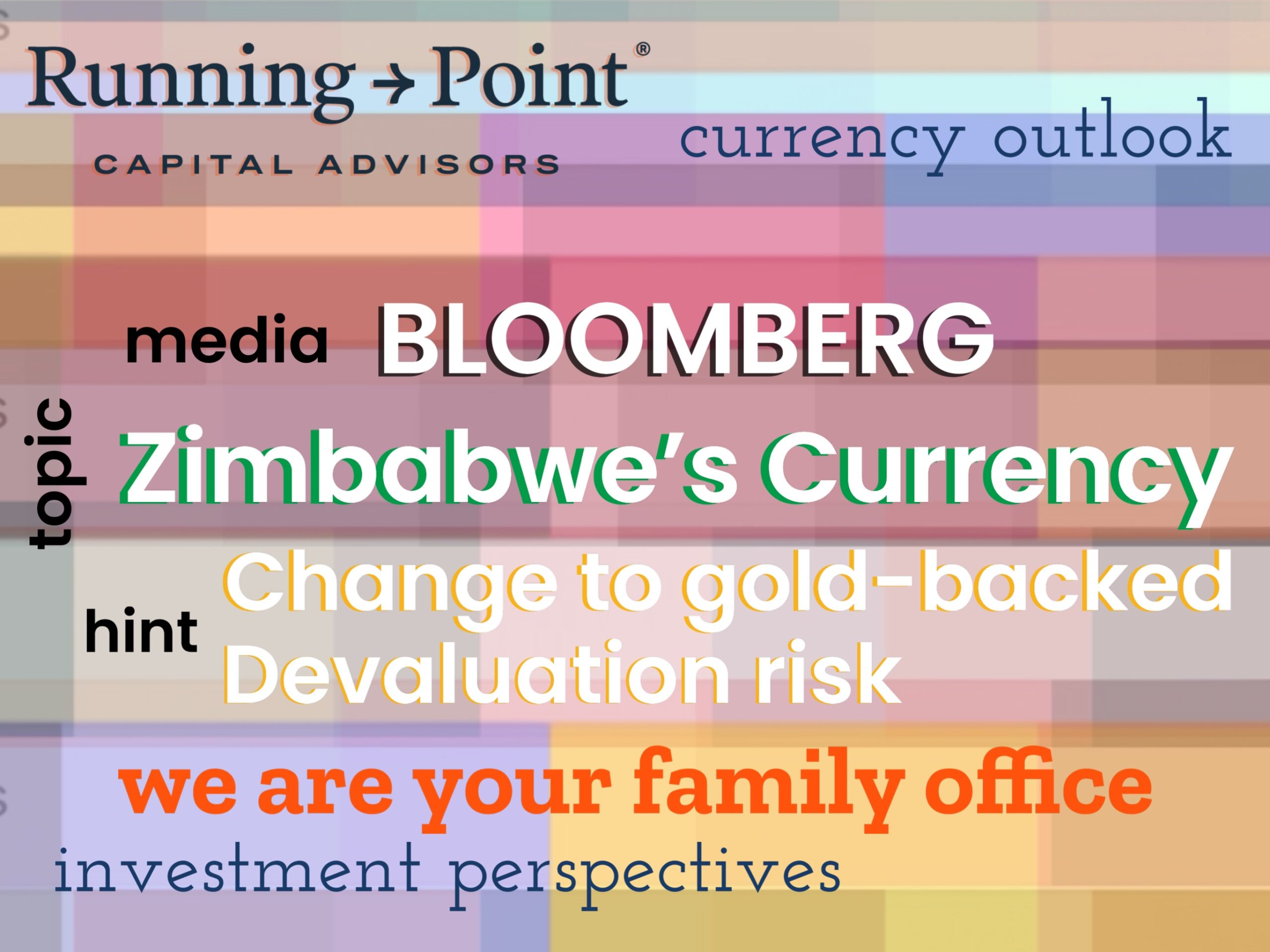Governments can rewrite bond rules — WTBF
Running Point and its chief investment officer, Michael Ashley Schulman, CFA, were quoted by Reuters in an article — by Pablo Mayo Cerqueiro, Chiara Elisei, and Davide Barbuscia, “Credit Suisse says $17 billion debt worthless, angering bondholders” — regarding Swiss regulators writing down over $17 billion of Credit Suisse Additional Tier 1 (AT1) debt to zero and prioritizing shareholders over AT1 bondholders in UBS’s acquisition of the 166 year old bank, Credit Suisse.
The article was also picked up by L’Echo (Belgium), UK Daily, BFM Bourse, Les Echos and L’AGEFI (France), Financial Intelligence (Romania), India Times, Asia One, Phillipine Star, China Times, Huashengtong and Sina (China), Orange News (Hong Kong), Vietnam Finance, Street Insider, U.S. News & World Report, Yahoo!, and Nasdaq, amongst others.
Adulting is hard!
The main investors in Credit Suisse’s AT1 bonds—and all other AT1 or contingent collateral (CoCo) bonds—are investment professionals, institutional investors, and hedge funds; i.e., the adults or grownups in the market. AT1 bonds are not the usual domain of individual or retail investors; they are the lowest-ranked bank debt, a legacy of the European debt crisis, and offer attractive returns in good times but take the first hit when a bank has capital problems. The professionals investing in AT1s should have understood the risks, even if that included the Swiss government interpreting capital structure (in an emergency) as they saw fit since CoCo bonds act as financial shock absorbers for a bank only when things go drastically wrong!
This move was clearly aimed at protecting the Swiss financial system. There may have been a large element of Swiss political involvement here vying not to completely obliterate all the individual retail investors and Swiss citizens that own the equity and also not to completely wipe out the Saudi National Bank’s stake after they took a $1.5 billion or 9.9% stake in Credit Suisse in November 2022 as part of the Swiss lender’s $4.2 billion capital raise to fund a strategic overhaul. Also the Qatar Investment Authority has a 6.8% stake and also Norges Bank Investment Management, the sovereign wealth fund of Norway had a 1.5% stake.
The move by Swiss authorities has calmed equity market nerves and bolstered confidence in the short-term, but if a previously $100 billion bank can be sold for $3 billion, there must be some major dent in confidence. Switzerland’s move has also caused investors to re-evaluate the entire CoCo bond market; the long-term consequence may be that this debt becomes more expensive for other european banks.
Bank bond game theory
According to rumors and reports, UBS agreed to soften a material adverse change clause that would void the takeover deal if UBS’s credit default spreads jumped between now and the closing of the transaction. The problem for investors and market participants is the fear that the deal could still be undone by the market itself since this is a situation where people have been voting with their feet and their wallets. If the deal is consummated, it will somewhat calm the markets.
However, one would be foolish to assume that this current banking malaise (here and abroad) is just confined to Silvergate, Silicon Valley Bank, Signature Bank, First Republic, and Credit Suisse. The rise in global interest rates and concurrent drop in bond prices has affected the balance sheets of many other banks around the globe. To invoke game theory, if no one panics, everything may seem fine; but there seems to be a first mover advantage for anyone who runs from smoke.
Getting what you wished for—a double-edged sword
Ironically, a year ago, most bank analysts were encouraging and hopeful about interest rate raises because they saw net interest margin (NIM) and bank profitability increasing. Obviously, this was a double-edged sword that cut both ways because it lowered the value of hold to maturity bonds on the banks’ balance sheets (especially if they were not hedged to rising interest rates).
On a global scale, Chinese bank stocks have held up well. Industrial and Commercial Bank of China has not been affected and China Construction Bank has rallied over the last week. But European banks shares are mostly down and even the Japan Post banks has lost value.
WTBF—Way Too Big to Fail
The larger banks are only going to grow bigger because of this current banking crisis. Too big to fail (TBF) will become Way Too Big to Fail (WTBF). What does this mean? Down the road, some of these banks may have to become quasi-government agencies and/or the regulators may just live inside the banks (more than they already do).
Quoted article excerpt is below:
The move by the Swiss regulator could make it harder for other lenders to raise new AT1 debt, investors said.
“It’s going to make the AT1 bonds more expensive for all the other banks going forward, because now everyone else is going to see this extra risk,” said Michael Ashely Schulman, partner and chief investment officer at Running Point Capital Advisors.
In French: Michael Ashely Schulman, directeur des investissements chez Running Point Capital Advisors, souligne que la décision des autorités suisse va rendre les titres AT1 plus chers pour toutes les autres banques à l’avenir, car «désormais tout le monde est conscient de ce risque supplémentaire».
In Mandarin: 如今,瑞士信贷的AT1债券被减记为零,彻底破灭了该债券持有人的希望。外媒报道称,有投资者表示,瑞士监管机构此举可能会加大其他银行发行新AT1债券的难度。
Running Point Capital Advisors合伙人兼首席投资官Michael Ashely Schulman表示,“这将使未来所有其他银行的AT1债券更加昂贵,因为现在所有人都正在看到这种额外风险。”

“Risk leads to wealth like Botox leads to youth.”
Hyposwiss bank
Disclosure: The opinions expressed are those of Running Point Capital Advisors, LLC (Running Point) and are subject to change without notice. The opinions referenced are as of the date of publication, may be modified due to changes in the market or economic conditions, and may not necessarily come to pass. Past performance is not indicative of future results. Forward-looking statements cannot be guaranteed. Running Point is an investment adviser registered with the U.S. Securities and Exchange Commission. Registration does not imply a certain level of skill or training. More information about Running Point’s investment advisory services and fees can be found in its Form ADV Part 2, which is available upon request. RP-23-24


